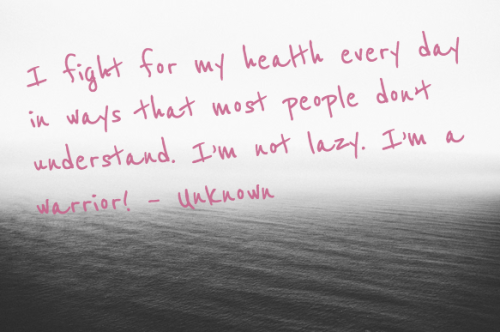 |
Our world with T1D is rather boring. We know the routine of finger pokes, CGM calibrations, site changes, doctor visits and medication refills like the non-MD holding doctors that we have become. Often, we feel like we are on autopilot as the burden of T1D is so consistent that it has morphed into becoming a strange kind of normal. Well to clarify, normal to us but to the outside world, still strange. This concept is part of the fool's paradise of living with T1D. The more calm the diabetes adventure, the more chance that something unpredictable is lurking around the corner. Which in our world, is always the T1D monster.
Today, in the middle of my happily not-so-exciting morning of coffee and email routine, I received a chirp from my ever present cell phone. Glancing simultaneously at both the caller ID which identified my daughter and the time which displayed 8:30 a.m., I assumed it to be nothing more than a plea for a forgotten item. With a smile, I tapped the speaker button and said "Hey Toots! How can we help? What are you in need of today?" along with fully expecting a goofy apology from the girl that is known to forget items on occasion. Instead, I listened to a very quiet voice that replied "Hi. Can you pick me up now? I am feeling sick."
((Insert instant worry.))
When this happens, it helps to know how to handle sick days. For our family, we have a loose routine of what the steps are to identifying the type of illness. As always, contact your endocrinologist to develop the plan that is right for you and your child.
1.) Start with measuring ketones. Either blood or urine ketone strips will work. In our family, insurance dictates the type of measuring device and we have only been successful at being reimbursed by insurance for urine ketone strips. I keep several containers on hand and ready to go at all times. Our girls know to grab one and check before we do anything further. I do however, repeat this step several times during an illness to ensure that we continue to remain ketone free.
2.) Monitor those blood sugars. When my girls are sick, often, their blood sugar levels begin to rise. This is a typical output of illness as the body is working to rid the illness and that stress leads to an increase in blood sugars. In our family, if there is no vomitting present, we often temporarily increase basal rates slightly to adjust for the increase in blood sugar. If you are unsure of the amount to increase, call your endocrinologist right away as feeling better goes in hand with optimal blood sugars. If there is vomitting present, call your endocrinolgist for instructions on further care. I've mentioned utilizing mini-glucagon injections in the past and if you are reading this before an illness hits, this is one technique that is worth learning ahead of time.
3.) Follow-up with fluids. When the girls are sick, they tend to avoid eating and drinking. It's a tough to feel up to drinking or eating when you feel nausea or your belly hurts. However, dehydration is one of the worst possible consequences of illness and it can also lead to the dreaded ketones. Having small sips of liquid is important to staying healthy. We encourage as much as our girls can handle without feeling overwhelmed.
4.) Keep background insulin going. Our girls may not eat carb laden food but they do need to continue to have insulin to keep their bodies healthy and to avoid dangerous Diabetic Ketoacidosis (DKA). With injections, patients may have safety by having long-acting insulin (usually Lantus or Levemir) on board for 12-24 hours but patients using an insulin pump have the ability to disconnect and no longer receive their basal rates. This may be tempting for pumping patients that are unable to eat and feel low. There is a concern here though; without insulin for a period of time, the body can start to produce ketones which makes for even more issues such as dehydration, stomach pain, more naseau and potentially landing in DKA. In our family, first we change their infusion site to ensure that the pump is working and then, we tend to switch fluids like water for those that contain carbs. Full-sugar ginger ale or tea sweetened with honey are two of our favorite choices. This allows the body to continue with insulin pumping while staying safely in blood sugar range.
5.) Contact your team members. Often, families are worried and not sure what to do. This is where your CDE or endocrinologists shine. If you need help, are concerned or worried, call your med staff team right away. This is especially important for illnesses with vomiting or diarrhea. You may find it helpful to note the time the symptoms started and to log a little journal of ketone and blood sugar checks. Then, you can let your med staff team in on the bigger picture and a better look at if an ER visit is warranted. Having med staff team support is the best medicine.
One last note... I am raising teenagers and with that comes along another host of growing issues stemming from puberty. If you are raising daughters, consider giving them a personal calendar or journal to track their cycles. For sons, a fellow parent shared that she sees a tremendous amount of growing pains. Both genders often suffer from excessive screen time, long study hours or irregular meal times. Kids are not experts in their changing bodies and often need a question prompt to help them identify what is making them feel poorly. I discovered that asking the same questions each time to develop a routine has been helpful. In the case of my daughter, she often suffers from seasonal migraines, had been playing outside during the unusual spring weather, skipped breakfast and to be honest, just needed some extra rest. An afternoon later and she felt back to happy, healthy self.
((Insert Instant Worry free))
For more information on T1D from the University of Michigan C.S. Mott Children's hospital (including a reference on page 24 for sick days) visit here.







